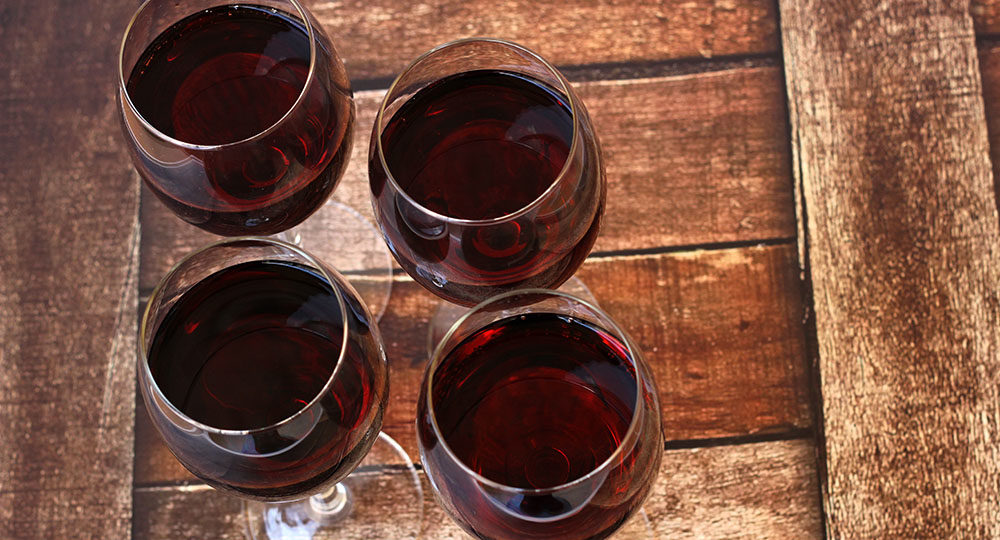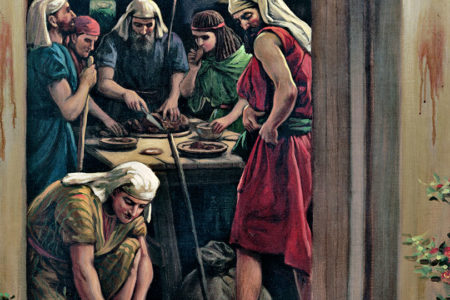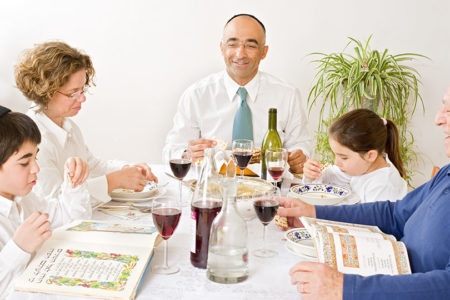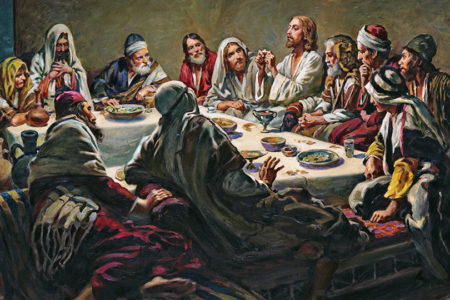The Four Cups
As we sat around the Passover table, my host took us back in time to the days when his grandfather conducted wonderful seders that would last for hours. He spoke of the special dinnerware his family used, some of which was now on our table; the extensive house-cleaning; and the hours of food shopping and preparation.
He told us of the candles, stories, four questions, the place set for the prophet Elijah, the songs, and—of course—the food. The look in his eyes and the tone of his voice told us these were fond, fond memories.
That seder, though not my first, was a special occasion for me. I grew up in a Christian, rather than a Jewish, home. Although I attended good Bible-believing churches my entire life, graduated from seminary, and planted the church I now pastor, I received little theological training about the important biblical holiday of Passover. Yet Passover is as important for Christians as it is for Jewish people because it is a clear and beautiful picture of God’s plan of redemption for all mankind.
My dear friend Tom Simcox, with The Friends of Israel, led me through my first seder many years ago. Since then, I have led them at my church for more than a decade and have seen how they have blessed us all.
Seder is a Hebrew word meaning “order” and usually refers to the service conducted at the dinner table. Each participant follows along in a Haggadah, a booklet that contains the seder service. It tells the story of the first Passover under Moses (Ex. 12) and includes songs and prayers.
It also includes a requirement to drink four cups of wine (or grape juice). The four cups are a vital part of the dinner and one of the most important aspects of the seder. They correspond to four “I wills” God promised the Jewish people in Exodus 6:
- “I will bring you out from under the burdens of the Egyptians” (v. 6).
- “I will rescue you from their bondage” (v. 6).
- “I will redeem you with an outstretched arm and with great judgments” (v. 6).
- “I will take you as My people, and I will be your God” (v. 7).
The four cups acknowledge the fact that God delivered His people from slavery in Egypt. Together they comprise a step-by-step memorial of that great event and the anticipation of one event yet to come.
The First Cup. This is the Cup of Sanctification. It is consumed early in the meal. Sanctification means “set apart.” Jewish people acknowledge, remember, and praise God that He selected, exalted, and set them apart by giving them His commandments. A prayer of praise is offered before the cup is drunk.
In Hebrew, the word for “sanctification” is kiddush. So the cup has become known as the Kiddush Cup. It is used to sanctify (set apart) every Sabbath, as well as Passover, and reminds the Jewish people God has set them apart from all other nations.
The Second Cup. This is the Cup of Praise. After the story of the Exodus—the ultimate account of liberation from slavery—is read, the Cup of Praise is drunk with a prayer of praise to God for being the constant source of deliverance in every generation of Jewish history.
He is praised for rescuing His people from Egypt, as well as from Babylon, Medo-Persia, Greece, Assyria, Rome, and all other foreign countries. From Abraham to today, God has delivered His people from their enemies.
The Third Cup. This is the Cup of Redemption. It is drunk after the meal and after the afikomen is found. (See “The Marvelous Afikomen.”) In the ancient world, redemption referred to slaves being purchased and liberated. Jewish people thank and praise God for freeing them from Egyptian bondage. Not only did God deliver them from the physical hardship of slavery but also from the constant exposure to Egypt’s false gods. No longer would the Israelites and their children be forcibly subjected to the worship practices of a pagan culture.
The third cup also has particular significance for Christians. It is the same cup Jesus took “after supper, saying, ‘This cup is the new covenant in My blood, which is shed for you’” (Lk. 22:20). The Cup of Redemption symbolizes what Jesus did for us: He shed His blood to redeem us from slavery to sin. That is why the apostle Paul, a highly trained Jewish scholar, wrote, “For indeed Christ, our Passover, was sacrificed for us” (1 Cor. 5:7).
The Fourth Cup. Everyone partakes of this cup near the end of the dinner. It is called the Cup of Acceptance or the Cup of Anticipation and celebrates the relationship God desires with His Chosen People.
This is the cup the Lord Jesus used to symbolize the ratification of the New Covenant and to institute communion. He did not drink it Himself, however, but said He will drink it when the Messianic Kingdom is established:
Then He took the cup, and gave thanks, and gave it to them, saying, “Drink from it, all of you. For this is My blood of the new covenant, which is shed for many for the remission of sins. But I say to you, I will not drink of this fruit of the vine from now on until that day when I drink it new with you in My Father’s kingdom” (Mt. 26:27–29).
Each time we celebrate the Lord’s supper in church and partake of the communion cup, we memorialize the Lord’s sacrifice of Himself as the Passover Lamb of God.
Too few churches today understand the significance of this beautiful Jewish holiday. I highly recommend churches hold a seder every now and then. Not only does it help Christians learn more about biblical Jewish history and culture, but it also helps them understand more about what it truly means to be redeemed by the blood of the Lamb.







Thank you for sharing your experience . I am from Pakistan and have a thirst of getting knowledge about the Jews religious rituals.
Jesus actually did drink the 4th cup of wine when they soaked a sponge on a sprig of hyssop (which was traditionally the branch used to spread the blood of the lamb over the doorpost to avoid the 10th plague), and gave it to Jesus on the cross. After he drank the wine on the cross, he said “it is finished”. He was speaking of “finishing” the passover meal, completing the sacrifice, and establishing his kingdom. Thus the sacrifice of the cross completes the Last Supper, the passover meal.
Thanks for sharing. Appreciate it very much! ✝️🙌🏼🙌🏼🙌🏼
Very Interesting perspective. Knowing Jewish traditions enlightens Christians as to the meanings of many of our beliefs. It seems important to listen to these great treasures in the Old Testament. I am in constant dialogue with an ultra-Orthodox Jewish friend. I always ask him what he thinks and it is amazing what his answers are. Thanks for posting this. It was very interesting. Be Blessed
I have been researching about the “Passover” in preparation for teaching. I have attended one Seder but was not impressed, I think the delivery took away from what we read. I have enjoyed learning about what each cup means and I truly will see the Lord’s Supper differently from this day forward.
Thank you for sharing this information.
Scott Hahns research and you tube talks say the 3rd cup is the cup of consecration, with the 4th cup is tasted on the cross..
It is important to know the Jewish roots of Christian faith for effective witnessing.
Thanks for the article. I havn’t given important to this thoughts before.
Beautiful insight. Thank you.
Glorichards.com
“Reach for the Elements”
My new book!
I enjoyed this study very much!
This is just beautiful! Our church has our bi-annual communion on this coming Sunday, Sept.8, 2019. I’ve often wondered the accurate meanings of these four cups, and thank you for the information. I have it written in detail in the margin of my Bible.
Thank you!!
Amen